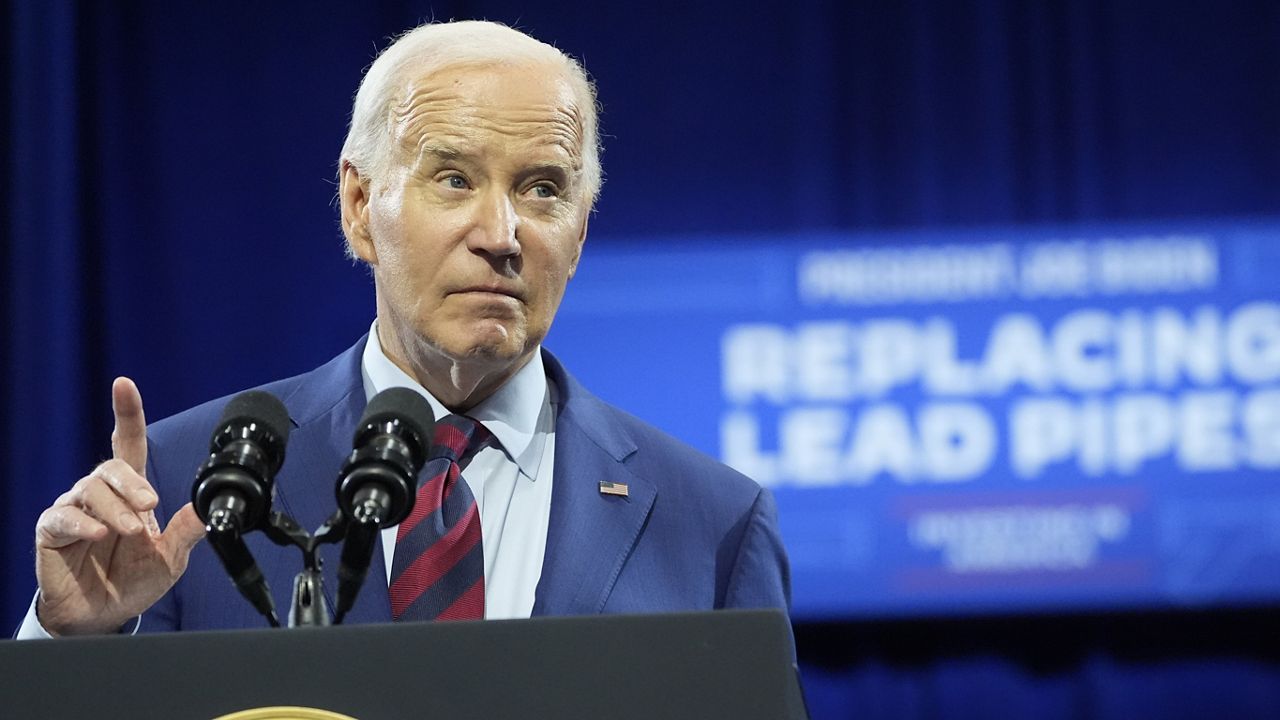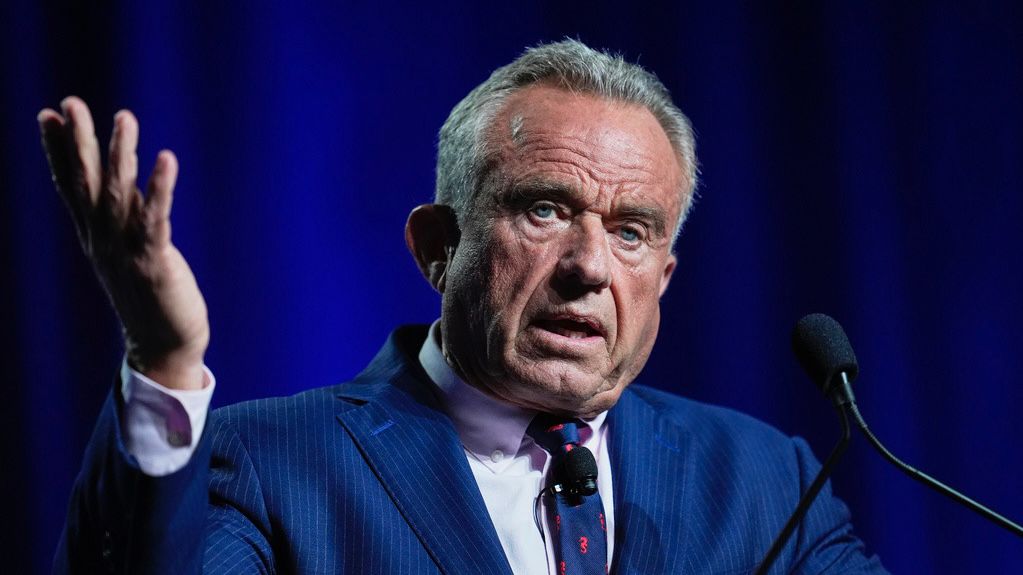The Biden administration announced Tuesday that a new rule has been finalized requiring utilities throughout the country to replace lead drinking water pipes within the next 10 years.
What You Need To Know
- The Biden administration announced Tuesday that a new rule has been finalized requiring utilities throughout the country to replace lead drinking water pipes within the next 10 years
- President Joe Biden will announce the rule Tuesday during a speech in Milwaukee
- He will also announce that the Environmental Protection Agency is making an additional $2.6 billion available, funded by the 2021 Bipartisan Infrastructure Law, for drinking water upgrades and lead pipe replacement
- Lead in water can cause a range of health issues, including premature births, birth defects in unborn children, and higher blood pressure and decreased kidney function in adults
President Joe Biden will discuss the rule Tuesday during a speech in Milwaukee.
He will also announce that the Environmental Protection Agency is making an additional $2.6 billion available, funded by the 2021 Bipartisan Infrastructure Law, for drinking water upgrades and lead pipe replacement.
Biden revealed his plan in December 2021 to replace all of the nation’s lead service lines. The EPA estimates lead pipes carry water into up to 9 million homes, many in lower-income communities and communities of colors.
Lead can enter drinking water when plumbing materials corrode. When consumed, the poisonous metal can cause a number of health problems, including higher blood pressure and decreased kidney function in adults. It can cause premature births and birth defects in unborn children. And even low levels in children can severely harm their physical and mental development.
“Since day one, the president and the vice president have been clear that all Americans, no matter where they come from, should have access to their most basic needs, including being able to turn on the tap and drink clean drinking water without fear,” White House Deputy Chief of Staff Natalie Quillian said in a call with reporters Monday. “We know that there is no safe level of lead exposure.”
Overall, the infrastructure law secured more than $50 billion for clean water, including $15 billion for lead pipe replacement. Water companies in some cities are already taking advantage. In May, Biden announced a tranche of $3 billion for states to swap out their pipes.
For example, Milwaukee received about $30 million this year alone to replace 3,400 lead service lines and has lowered its timeline to rid itself of lead pipes from 60 years to 10, the White House said.
Detroit, Denver and Erie, Pennsylvania, are among other cities that have received funding and are replacing their lead service lines.
The Biden administration said the massive undertaking will also create jobs and cut public health costs.
For every $1 billion invested in water infrastructure, 15,500 jobs are created, the White House said.
The EPA estimates that each year the new rule will protect up to 900,000 infants from having low birthweight, prevent attention deficit hyperactivity disorder in 2,600 children, reduce up to 1,500 cases of premature death from heart disease and prevent up to 200,000 IQ points being lost in kids.
EPA Administrator Michael Regan said “delivering a lead-free America is President Biden’s legacy.”
“This is a matter of public health, a matter of environmental justice, a matter of basic human rights, and it is finally being met with the urgency it demands,” Regan said.
A senior administration official said the final rule is more stringent than an earlier draft, which would have allowed for more cities to receive exemptions. The official said the administration is “very sure” 99% of cities will meet the 10-year deadline, while another official said the administration will work with the remaining municipalities to find financing and address issues they may be facing.
In addition, the EPA is lowering the level of lead — from 0.015 milligrams per liter to 0.010 — at which utilities are forced to take action by notifying residents and taking steps to reduce levels. Repeat offenders could be required to make water filters available to all residents in a community.
The rule may face challenges from Congress or in the courts. A senior administration official argued “it’s on solid legal footing, supported by the science.” Another official said they “hope that ending the poisoning of our kids from lead water should and could be a bipartisan priority.”
Ryan Chatelain - Digital Media Producer
Ryan Chatelain is a national news digital content producer for Spectrum News and is based in New York City. He has previously covered both news and sports for WFAN Sports Radio, CBS New York, Newsday, amNewYork and The Courier in his home state of Louisiana.










)